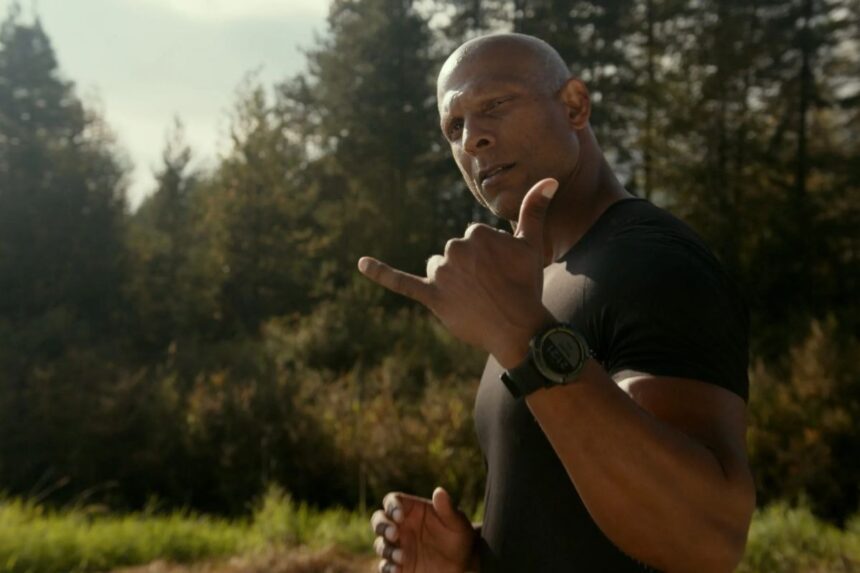I’ve caught a remarkable story this week that reminds us how personal struggles can spark national movements.
Chris Macdonald stepped onto Mile Zero of the Trans-Canada Highway in Victoria, B.C. on Sunday with his running shoes laced tight and a mission that stretches far beyond the 7,200 kilometers ahead of him. The 39-year-old former paramedic isn’t just attempting to run across our vast country – he’s carrying the weight of our collective mental health crisis with every stride.
“This isn’t about me anymore,” Macdonald told a small gathering of supporters at the starting line. “It’s about everyone who’s struggling in silence, everyone who’s lost someone, everyone who needs to know they’re not alone.”
His journey, dubbed “Run to Recovery,” emerged from his own battles with PTSD and depression after years of frontline emergency work. What struck me during our brief conversation was how Macdonald speaks about mental health without the clinical distance we often hear from officials – there’s an urgency in his voice that statistics alone can’t convey.
The timing couldn’t be more critical. According to the Canadian Mental Health Association, one in five Canadians experiences mental health challenges annually, yet nearly half never seek professional help. In rural communities I’ve visited across the prairies and northern Ontario, the isolation and stigma create even deeper barriers.
Macdonald plans to complete his cross-country journey in St. John’s, Newfoundland by early fall, averaging about 42 kilometers daily – essentially a marathon each day. He’s partnered with several mental health organizations, including Jack.org, which focuses on youth mental health resources.
“We’re seeing unprecedented mental health needs post-pandemic,” explains Sarah Mitchell, regional coordinator for Jack.org in British Columbia. “What Chris is doing creates conversations in communities that might otherwise never happen.”
What makes this run different from other awareness campaigns is Macdonald’s commitment to stop in smaller communities often overlooked by national initiatives. His route includes dozens of towns where mental health services are limited or non-existent.
“Sometimes just seeing someone pass through town for a cause like this can be the permission someone needs to speak up,” Mitchell added.
Provincial health ministers across the country have acknowledged the mental health crisis demands more attention. Last quarter’s federal health transfer included specific provisions for mental health services, though critics argue implementation remains fragmented across provinces.
The economic cost of mental illness in Canada exceeds $50 billion annually according to the Mental Health Commission of Canada, factoring in healthcare costs and lost productivity. But those numbers fail to capture the human toll I’ve witnessed in communities from Prince George to Thunder Bay.
I caught up with Deb Harrington, who drove three hours from her Vancouver Island community to see Macdonald off. She lost her son to suicide in 2019.
“Maybe if he had seen something like this, known there were people fighting for better support, things might have been different,” she said, wiping away tears. “Every time someone speaks up, it helps the next person do the same.”
Macdonald’s support team includes two friends following in a modest RV that serves as his mobile recovery station. They’re documenting the journey on social media, creating daily video updates that have already garnered thousands of followers.
Local running clubs are organizing segments to join Macdonald as he passes through their communities. In Kamloops, where he’ll arrive next week, over fifty runners plan to accompany him through the city.
This grassroots approach stands in contrast to how mental health initiatives are typically organized from the top down. It reminds me of conversations I’ve had with community health workers who insist real change happens person-to-person, not just through policy.
The physical toll of such an undertaking can’t be overlooked. Sports medicine specialist Dr. James Wong explained that running a daily marathon for months presents extreme physical challenges.
“The body can adapt to incredible demands, but this will push human limits,” Dr. Wong told me. “The mental resilience required might be even greater than the physical.”
That mental resilience is exactly what Macdonald hopes to spotlight. He carries with him a small notebook where people can write names of loved ones affected by mental health struggles – a growing document of our collective experience that he’ll carry from coast to coast.
Weather and terrain will present varying challenges as Macdonald makes his way east. The Rogers Pass in B.C. features difficult elevation changes, while summer heat across the prairies and humidity in eastern provinces will test his endurance.
As our paths crossed, I couldn’t help asking Macdonald what he thinks about during those long hours on the road. His answer was surprisingly simple.
“I think about the next person who might decide to get help because they heard about this run,” he said. “That’s enough to keep me going.”
For those interested in following Macdonald’s journey or supporting his cause, the Run to Recovery website provides daily updates and connects visitors to mental health resources in their area.
Sometimes in the rush of political headlines and policy debates, we miss these quieter stories of Canadians taking extraordinary action. As Macdonald makes his way through communities large and small in the coming months, he reminds us that behind every mental health statistic are real people with stories that deserve to be heard.
And sometimes, healing begins with a single step.






